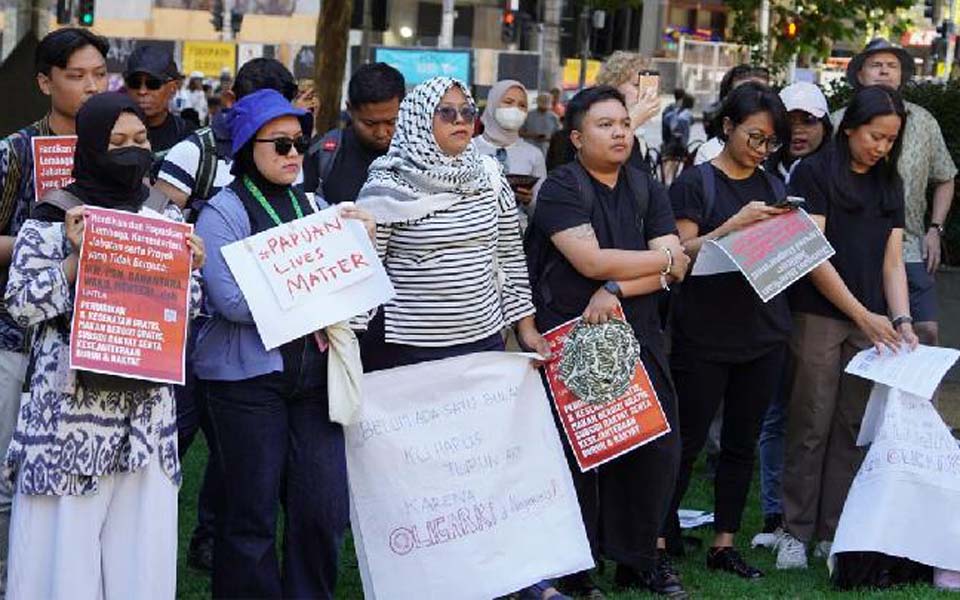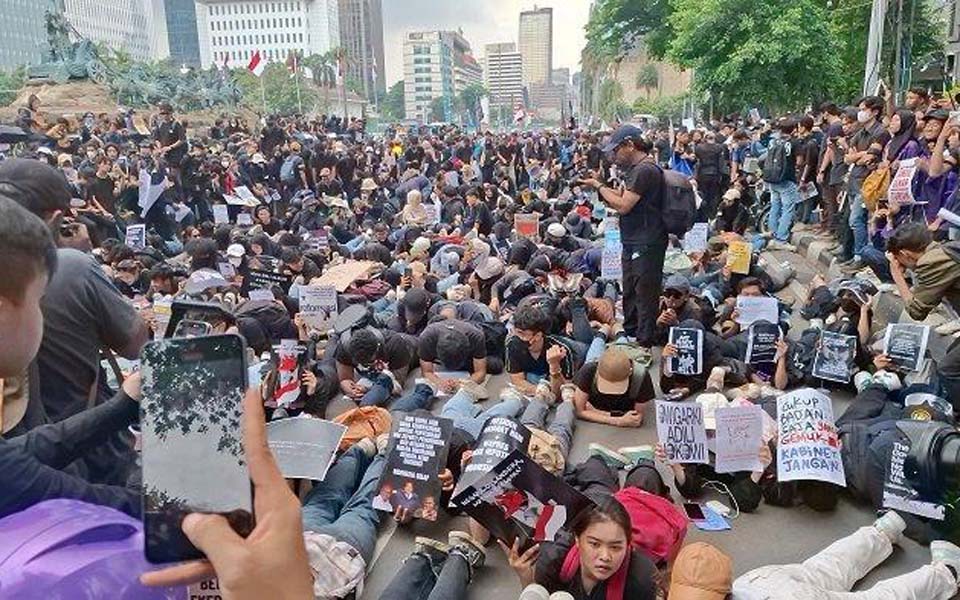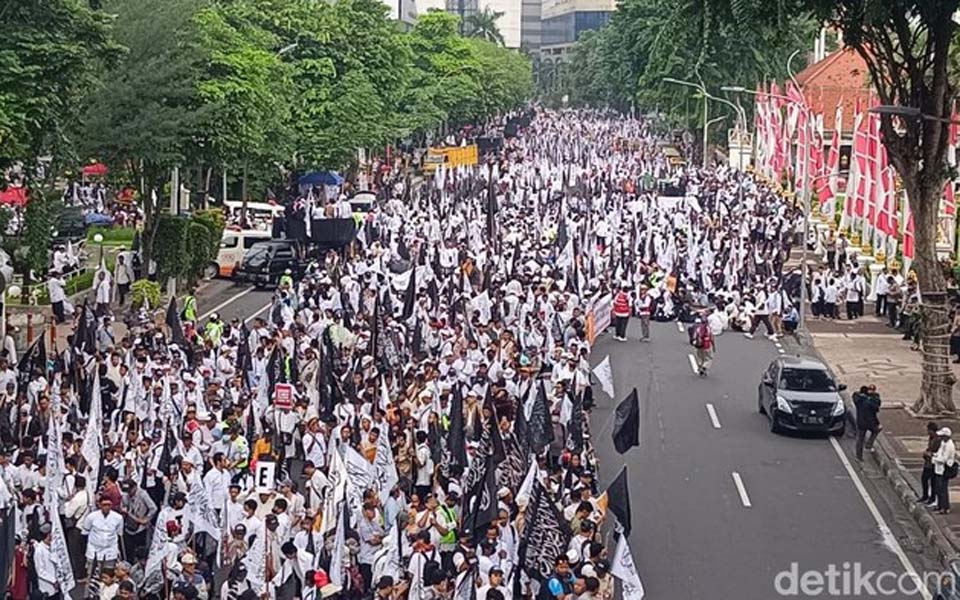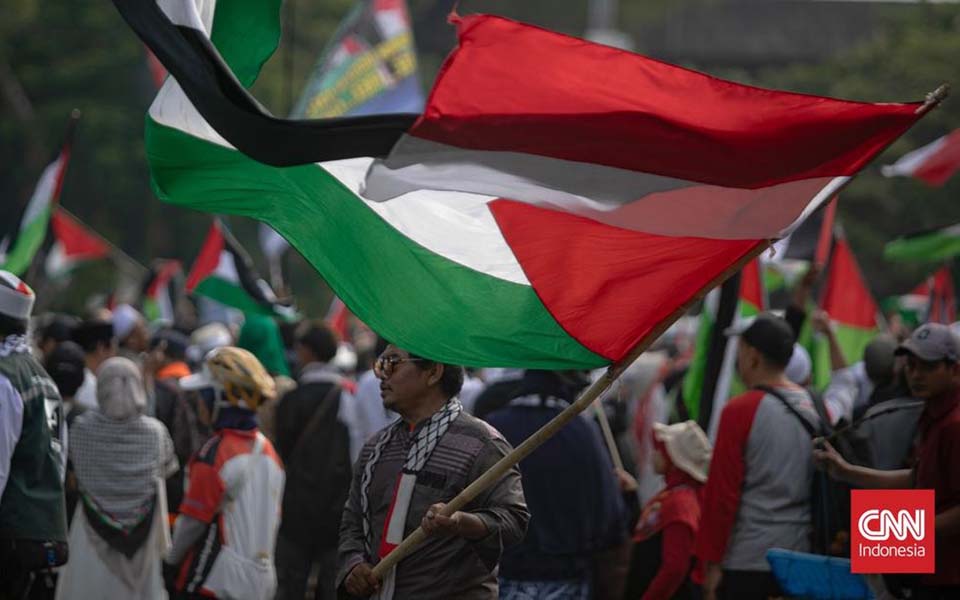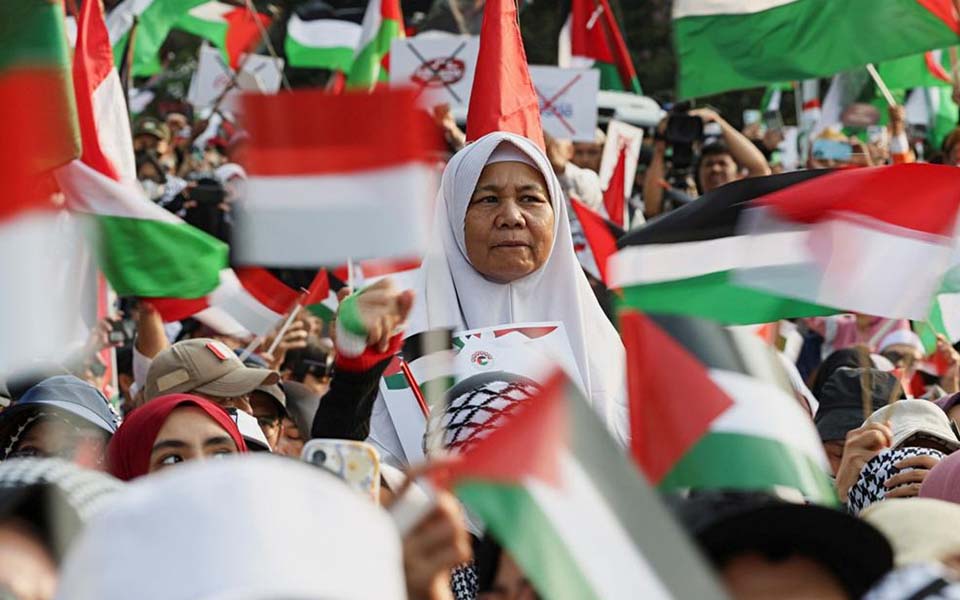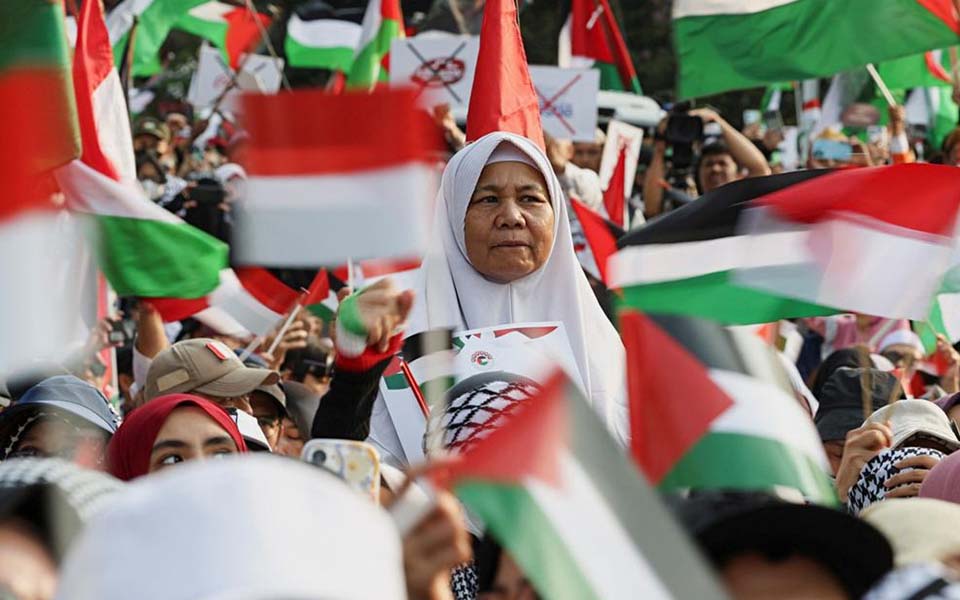[The following is a translation of the first part of a article which INDOLEFT readers may find “interesting” given the neo-liberal policies currently being pursued by the government of Megawati Sukarnoputri – James Balowski.]
Bandung -- President Megawati Sukarnoputri has emphasised that Asia and Africa must be united. This is primarily because up until this time, the people’s struggle in the two continents, which has been articulated since 1955 through the Asia-Africa conferences, has yet to succeed. Meaning that the peoples of the two continents have yet to succeed in improving their bargaining position and obtaining equality and justice.
“Just 20 per cent of humanity controls 80 per cent of the [world’s] wealth, while the other 80 per cent must live on the remaining 20 per cent of this wealth. Certainly this is a strong basis for us, [for why] the peoples of Asia and Africa must be united”, said Megawati in opening the Asia-Africa Sub-regional Conference (AASROC), in Bandung, West Java, on Tuesday (29/7).
Present at the opening was the Minister of Foreign Affairs Hassan Wirajuda and the South African Foreign Minister, Nkosazana C Dlamini-Zuma, as the co-convener of AASROC which will continue though till next Wednesday. South Africa is also the head of the Non-Aligned Movement.
Aside from this, this opportunity will also be used in the framework of preparations for a second AASROC meeting in South Africa next year which it is hoped will be able to formulate a concrete joint program between Asia and Africa. It is hoped that the formulation of this concrete program can be completed to coincide with 50 years since the [first] Asia-Africa Conference [which falls] in 2005.
Megawati emphasised the need to unite the people’s of Asia-Africa, primarily in confronting the fact that those [countries] which are powerful are always able to enforce their wishes [on other countries] and have the ability to control economic and technological resources. Therefore, the gap between the rich and developed countries and the poor and backward countries has yet to be fully bridged.
The appearance of globalisation and market economics which has been offered as the locomotive for progress, continued Megawati, has yet to provide many benefits. Aside from this, efforts by the Asian and African countries to implement liberalisation of trade and investment along with their efforts to integrate [their countries] into the global economy, has in fact, not been able to alter the bargaining position of the Asian and African countries.
Moreover, she continued, from 1955 to this day, the peoples of Asia-Africa are both still struggling against the same problems. But, in the form of “new” imperialism and colonialism such as debt burdens and the inability to compete [with the wealthy countries] so that they are forced to continue to be on the sidelines of the process of globalisation. Aside from this, they are also struggling against poverty and other related issues, such as indifference, a lack of food, the spread of decease, including AIDS, an explosion in the size of urban populations, along with a reduction in the quality of the environment.
All of this, said Megawati, paints a picture of unbalance and inequality in international economic relations. Meaning, the role of developing countries is marginalised in the formulation of international economic policy. “The impression which emerges is of a new type of domination by the advanced countries over the developing countries, their ex-colonies”, she said.
Quoting from a speech by [her father and Indonesia’s founding president] Sukarno at the 1995 Asia-Africa Conference, Megawati recalled that President Sukarno urged the countries which were present at the conference at that time to not view colonialism in its classic form, but in a new form, such as the economic, intellectual and physical control [over developing countries].
“However, thing are the same, the situation has not yet changed much. In general, the world has yet to become more stable, more just, and more prosperous. The vision of human values which was articulated here, in Bandung, by President Sukarno almost five decades ago, when [he] opened the Asia-Africa Conference, have yet to transpire”, said Megawati.
Megawati therefore invited all of the peoples of Asia and Africa to unite, not just in the field of politics, but also economically, socially and culturally. For this, the peoples in the two continents must build a bridge of joint work to like the two continents together. This bridge, continued Megawati, can be created in the form of a “new strategic partnership”.
[Translated by James Balowski.]







